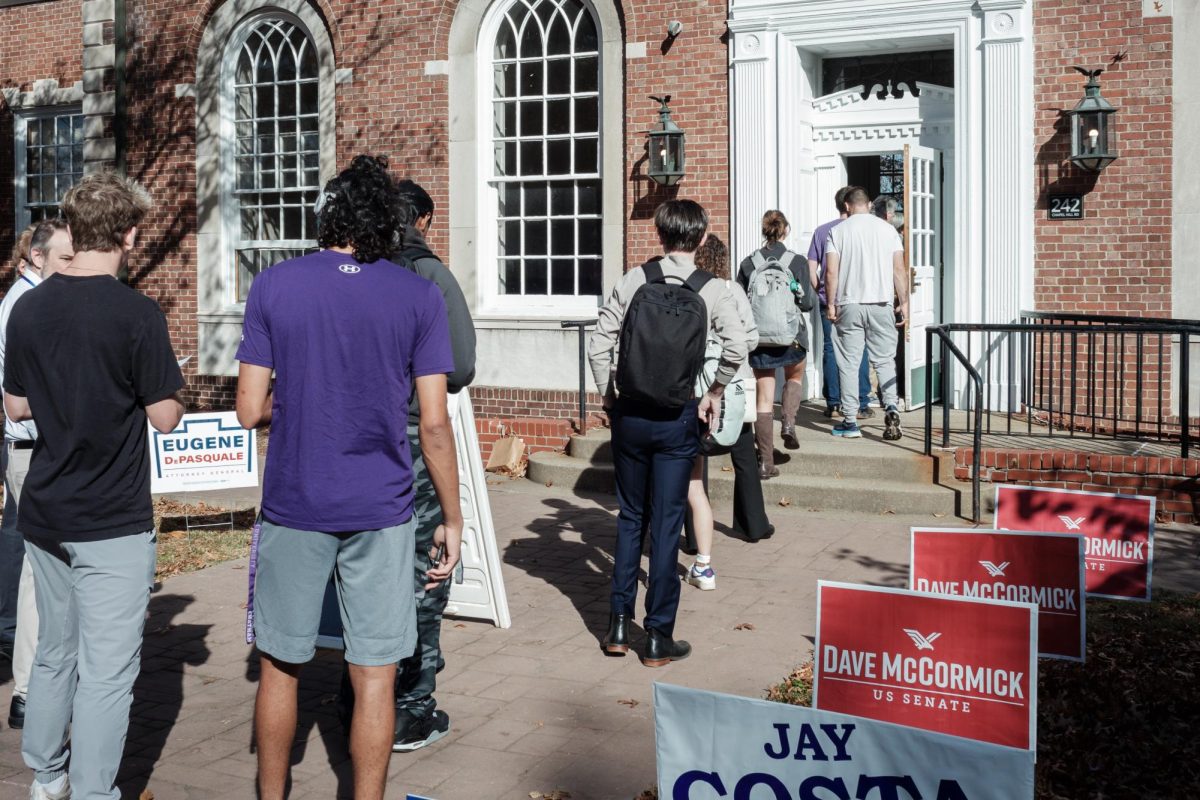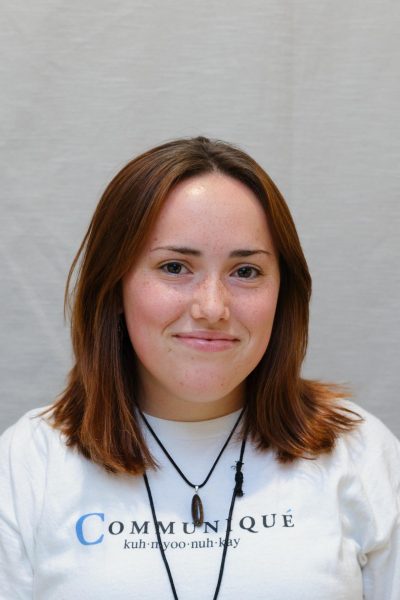Former President Donald Trump was elected to be the 47th president of the United States, defeating Vice President Kamala Harris. Trump will be the second president to serve two non-consecutive terms and has dominated politics for much of the last decade.
The days after the Nov. 5 election have brought to Chatham University’s campus a range of emotions for students, faculty and staff.
“I think the energy was more positive on Election Day compared to the days after. I had one teacher cancel class and said, ‘I’ll most likely be in my office with snacks, tea and conversation if you need anything or always reachable by email or text,’” said Lauren Bailey ‘26. “I think that it will especially impact the minorities and women on the campus. I feel like it would just put them in a state of depression.”
Dr. Jennie Sweet-Cushman, associate professor of political science, expressed a similar concern for students who are members of marginalized communities.
“I think these results have the potential to impact college students in an abundance of ways, and a lot of those ways are dependent on their identities. There will no doubt be efforts to erode what civil rights protections have been put in place and the hateful rhetoric puts them in the crosshairs,” Sweet-Cushman said. “I really hope the Chatham community recognizes that it is on us to protect our trans friends and takes that responsibility very seriously.”
Some students still expressed feelings of hope and motivation following the election, despite initial waves of concern and discouragement.
“It’s not the outcome that I wanted, or the one I thought we would see. …The results of this election have motivated me to get more involved in campaigns, study harder in my major, help people register to vote and continue to have constructive and respectful conversations with people who think differently than I do,” said Nathaniel Martinelli ‘27. “Having these conversations with each other is the only path to finding common ground.”
“I think this loss will have a long-lasting impact on Chatham’s community, because we were all hoping to see a change in leadership,” said Rachel Koshy ‘26. “I really hope that we, as students, continue to voice our opinions on matters we care about. Even though our leaders might not reflect or embody our beliefs, in many ways, this alone does not take away our agency individually as students.”
As some Chatham students celebrate and others grieve, all consider the far-reaching implications of this election on a myriad of policy issues.
During Trump’s last presidency, changes were made to Title IX that redefined sexual harassment and limited the obligation educational institutions have to address sexual harassment and assault in order to prohibit intentional sex discrimination. It also clarified what protections were granted to pregnant or LGBTQ+ students, among other clarifications. These changes were reversed by the Biden administration earlier this year.
“We can probably expect a rollback in Title IX protections as the Trump administration did during his first presidency regarding universities’ grievance process when an individual files a complaint about sexual assault or sexual harassment,” said Dr. Dana Brown, executive director of the Pennsylvania Center for Women and Politics (PCWP). “Trump has also promised to eliminate the Department of Education, and if he is successful, that could impact [things from] student loans to athletics.”
Throughout election season, Project 2025 – a plan that has been tied to Republicans with a suggested vision for a second Trump administration – includes the possibility of cutting the Department of Education, which provides funding for schools and higher education institutions. However, some responsibilities of the Department of Education could be reallocated to various government agencies.
“A lot of our students come from middle class homes, and economic projections seem to show that they may pay more in taxes, which makes college harder to afford,” Sweet-Cushman said.
According to the Pew Research Center, college affordability is not a top priority for most of the Republican party, which will now control both the Senate and House of Representatives. Trump has previously expressed disdain for President Joe Biden’s student loan forgiveness programs and claimed he would reverse them.
“I wouldn’t look for any investment in pell grants or efforts to reform the student loan program – and I’d be pretty concerned about what might happen with loan forgiveness programs that Biden has bolstered throughout his administration,” Sweet-Cushman said.
These possibilities will be explored following Trump’s inauguration in January. In the meantime, Brown and Sweet-Cushman encourage students to seek more information on the issues that are important to them.
“A lot of things are maybe more frightening because students don’t always know how to expect things [to] play out. So I encourage them to ask lots of questions and really try to understand how executive authority and governmental institutions work,” Sweet-Cushman said. “Most of all, stay informed.”
“I also would like students to rely on journalistic sources of information … and less so on social media,” Brown said.
The spread of misinformation has been a consistent concern for many, especially when it comes to politics. Brown recommends combatting it by seeking out credible sources and using that information to move forward.
“Allow that information to inform how you want to engage. For example, if the Trump administration does something you agree or disagree with, let your congressperson know. Pick up the phone or send an email,” Brown added. “Voting is only one form of engagement. Citizens can and should be talking with their government constantly, not just at election time.”
Many Chatham students have been involved in this year’s presidential election, with events hosted by the Pennsylvania Center for Women and Politics such as debate watch parties and voter registration tabling. Some students had the opportunity to hear Minnesota Gov. Tim Walz speak as part of the Harris-Walz ticket campaigning in Pittsburgh. Martinelli was one of the students who participated as part of the Campaigns and Elections class.
“Experiencing the election in Pittsburgh while studying politics has been an incredible experience. … It’s something I will never forget,” said Martinelli.
For students seeking support, the Counseling Center is holding drop-in hours over the next few weeks. The Pennsylvania Center for Women and Politics is holding its post-election analysis event from 6-7:30 p.m. Tuesday, Nov. 12, in Laughlin Music Hall. A panel of political experts will analyze the results of the election on a national and local level. Students can register at https://chatham.edu/events/details.cfm?eventid=32914. The PCWP also encourages students to sign up for its newsletter via its website.




